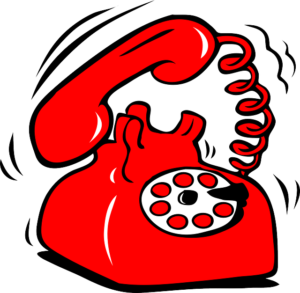Do you find yourself constantly checking your phone, even when you don’t have any notifications? Do you feel anxious or uneasy when your phone battery is low or you forget it at home? If so, you may be experiencing nomophobia, the fear of being without your phone.
This phobia affects a growing number of people, and its impact on daily life and relationships can be significant. Understanding the psychology behind nomophobia is essential to addressing the issue.
This article will delve into the causes and triggers of nomophobia, as well as its signs and symptoms. You will learn about the negative consequences of excessive phone use and how to cope with the anxiety that comes with it.
From digital detox to building healthy habits, this article will provide you with evidence-based strategies to help you maintain a balanced relationship with your phone and move towards a more mindful and fulfilling life.
Key Takeaways
 Nomophobia is a common fear that affects 66% of people and can lead to anxiety, depression, and panic attacks.
Nomophobia is a common fear that affects 66% of people and can lead to anxiety, depression, and panic attacks.- Coping mechanisms such as mindfulness, deep breathing exercises, and setting boundaries for phone use can help manage nomophobia.
- Digital detox, spending time in nature, and unplugging from technology can provide numerous benefits and improve overall well-being.
- Seeking professional help through therapy or counseling can provide support and guidance to overcome nomophobia and develop healthy habits for mindful technology use.
Defining Nomophobia: What Is It and Who Is Affected?
You can’t imagine going a single day without your phone, and the mere thought of it sends shivers down your spine. That’s because you’re a victim of nomophobia.
Nomophobia, or the fear of being without your mobile phone, is a growing phenomenon that affects millions of people worldwide. In fact, a study by SecurEnvoy found that 66% of people suffer from nomophobia, with younger generations being more likely to experience it.
The causes and prevalence of nomophobia are complex, but one major factor is the way in which smartphones have become an essential part of our daily lives. We use our phones to stay connected with friends and family, to access information, and to navigate our surroundings.
The constant need to stay connected can lead to feelings of anxiety and fear when separated from our devices. This fear can have a significant impact on daily life and relationships, causing people to avoid situations where they may be without their phones or to experience negative emotions when they are forced to be without them.
The Psychology of Nomophobia: Understanding Its Causes and Triggers
Did you know that the phobia of being without your phone, also known as nomophobia, can have a significant impact on your mental health? The fear of being disconnected from your phone can lead to anxiety, depression, and even panic attacks.
This fear is often caused by a need for constant connectivity and the fear of missing out on important information or events. The causes and triggers of nomophobia can vary from person to person.
Some individuals may develop this fear due to past experiences, such as losing a phone or being unable to contact someone in an emergency. Others may develop it due to societal pressures and the belief that being constantly connected is necessary for success.
Regardless of the cause, it is important to recognize the impact that nomophobia can have on your mental health and take steps to manage it, such as setting boundaries and limiting phone use.
Signs and Symptoms: How to Recognize Nomophobia in Yourself and Others
Imagine constantly feeling a sense of unease and restlessness whenever your hand isn’t holding a little shiny object that connects you to the world. This is a common experience for individuals with a phobia of being without their phone.
Some of the most common signs and symptoms of nomophobia include anxiety, panic, irritability, and a sense of disconnection from the world. Recognizing triggers is a crucial step in managing nomophobia.
Some of the most common triggers include being in a location with no cellular service, running out of battery, or forgetting your phone at home. If you notice that you experience heightened anxiety or other symptoms in these situations, it may be a sign that you are struggling with nomophobia.
Seeking support from a mental health professional can also be helpful in managing this phobia and developing healthy coping strategies.
Negative Consequences: How Nomophobia Can Impact Your Life and Relationships
Feeling like an island in the middle of a vast ocean with no connection to anyone can be a lonely experience caused by the absence of a device that holds our world, impacting our lives and relationships. Nomophobia, or the fear of being without your phone, can have a negative impact on mental health, productivity, and focus.
Here are a few ways that nomophobia can impact your life:
- Increased anxiety: When you’re separated from your phone, you may experience intense feelings of anxiety or panic. This can lead to physical symptoms such as sweating, shaking, or a rapid heartbeat.
- Decreased productivity: Constantly checking your phone for notifications can be a major distraction, leading to decreased productivity and difficulty focusing on tasks.
- Strained relationships: If you’re always on your phone, it can be difficult to fully engage with the people around you. This can lead to strained relationships and feelings of isolation.
It’s important to recognize the negative consequences of nomophobia and take steps to reduce its impact on your life. This might include setting boundaries around phone use, finding alternative ways to connect with others, and seeking professional help if necessary.
Coping Mechanisms: Strategies for Dealing with Nomophobia and Reducing Anxiety
To cope with nomophobia and reduce anxiety, you can try practicing mindfulness and deep breathing exercises to calm your mind and focus on the present moment. Mindfulness involves paying attention to your thoughts and feelings without judgment. This practice can help you become aware of your triggers and patterns of behavior, allowing you to choose how you respond to them.
Deep breathing exercises, on the other hand, can help you slow down your heart rate and lower your blood pressure. These exercises can be done anywhere, anytime, and can be a useful tool to manage stress and anxiety.
Another coping mechanism for nomophobia is to use distraction techniques. This can involve engaging in activities that take your mind off your phone, such as going for a walk, reading a book, or spending time with friends and family.
Additionally, you can try setting boundaries for yourself, such as turning off notifications or setting specific times to check your phone. This can help you create a healthier relationship with your phone and reduce the anxiety associated with being without it.
By incorporating these coping mechanisms into your daily routine, you can reduce the negative impact of nomophobia on your life and relationships.
Mindfulness and Meditation: Using Mind-Body Techniques to Calm Your Mind
As you take a few deep breaths, imagine yourself in a peaceful place where you can practice mindfulness and meditation techniques to calm your mind and body.
Mindfulness meditation involves focusing your attention on the present moment, observing your thoughts and feelings without judgment. This can help you become more aware of your automatic responses to stress and develop a more compassionate attitude towards yourself.
Breathing exercises are a simple way to start practicing mindfulness. You can sit or lie down comfortably, close your eyes, and take slow, deep breaths, focusing on the sensation of air moving in and out of your body.
The body scan meditation involves systematically bringing your attention to different parts of your body and noticing any sensations, tension, or discomfort. With practice, mindfulness and meditation can help you reduce anxiety, improve your mood, and cultivate a sense of inner peace.
Digital Detox: Taking a Break from Technology to Reconnect with the Real World
Take a moment to disconnect from technology and experience the benefits of a digital detox.
The constant bombardment of notifications, messages, and social media updates can quickly become overwhelming, leading to feelings of anxiety and stress. However, unplugging from technology can provide numerous benefits, including improved sleep, reduced anxiety levels, and increased mindfulness.
One way to unplug and reconnect with the real world is through nature therapy. Spending time in nature has been shown to reduce stress and improve overall well-being.
Additionally, disconnecting from technology allows for more opportunities to connect with others and build social connections. By finding a balance between technology use and unplugging, you can improve your mental health and overall quality of life.
So, take a break from your phone and spend some time in nature or connecting with loved ones. Your mind and body will thank you for it.
Building Healthy Habits: Tips for Maintaining a Balanced Relationship with Your Phone
Your phone can be a helpful tool, but it’s important to create healthy habits and not let it consume your life like a hungry monster. One way to do this is by creating boundaries. Set a time limit for how long you will use your phone each day, and stick to it. Turn off notifications for non-essential apps so you’re not constantly interrupted.
Consider leaving your phone in another room during mealtimes or when spending time with loved ones. By setting limits and creating boundaries, you can maintain a balanced relationship with your phone.
Another important habit to cultivate is disconnecting regularly. Take breaks from your phone throughout the day. Go for a walk, read a book, or engage in another activity that doesn’t involve technology.
Consider having a designated time each day where you turn off your phone completely. This can help you recharge and reconnect with the real world. By building healthy habits around your phone use, you can avoid the phobia of being without it and enjoy a more balanced and fulfilling life.
Seeking Professional Help: When to Consider Therapy or Counseling for Nomophobia
If you’re struggling to break free from the grip that your phone has on your life, seeking professional help through therapy or counseling can provide the support and guidance you need to overcome nomophobia and take back control of your mental health.
While it may seem daunting to admit that you need help, therapy offers benefits that can help you achieve a healthier relationship with your phone. One of the main benefits of therapy for nomophobia is that it provides a safe and confidential space where you can explore the root causes of your addiction to your phone.
A therapist can help you identify negative thought patterns and behaviors that contribute to your dependence on your phone, and work with you to develop strategies for breaking these habits. Additionally, therapy can help you develop coping mechanisms for managing anxiety and stress, which are often underlying factors in phone addiction.
Overall, seeking professional help for nomophobia can be a positive step towards a healthier, more balanced relationship with your phone.
Moving Forward: Embracing a More Mindful and Balanced Life with Technology
By learning to view technology as a tool rather than a crutch, we can cultivate a more mindful and balanced relationship with our devices, like a gardener tending to a delicate flower.
Mindful technology use involves setting boundaries with devices by deciding when and where we use them. For instance, we can designate certain times of the day to check our email or social media accounts and decide to disconnect from our devices during important activities such as meal times, work meetings, and social gatherings.
Setting boundaries with devices is not only beneficial for our mental and emotional health but also helps us become more productive and focused. Research shows that constantly checking our phones or being distracted by notifications can negatively impact our ability to concentrate and retain information.
By practicing mindful technology use, we can train our brains to be more attentive and present in the moment. Ultimately, it’s up to us to decide how we want to interact with our devices and whether we want to let them control our lives or use them as tools to enhance our experiences.
How can I prevent my children from developing nomophobia?
As a parent, it’s important to be proactive in preventing your children from developing problematic smartphone habits. One effective strategy is to utilize parental control features that come with most smartphones.
For example, you can set time limits on app usage or restrict access to certain apps altogether. Additionally, consider introducing your children to mindfulness training techniques to help them develop a healthier relationship with technology.
Encourage them to take breaks from their devices and engage in activities that don’t involve screens. By fostering awareness and self-regulation, you can help your children avoid the negative consequences associated with excessive smartphone use.
Is there a correlation between social media use and nomophobia?
You’ve probably heard about the impact of social media on mental health, but have you ever stopped to consider how it might be contributing to nomophobia? The fear of being without your phone can have detrimental effects on productivity, but it’s important to understand the role that social media plays in exacerbating this phobia.
Research has shown that excessive social media use can lead to symptoms of anxiety and depression, which can in turn fuel a dependency on our phones. By constantly checking for notifications and seeking validation through likes and comments, we become more and more attached to our devices, making it increasingly difficult to disconnect.
While social media is not the sole cause of nomophobia, it certainly plays a significant role in perpetuating this modern-day phobia.
Can nomophobia lead to physical health problems?
Nomophobia, or the fear of being without your phone, has been found to have a negative impact on mental health. Studies have shown that individuals who experience nomophobia are more likely to report symptoms of anxiety and depression.
Furthermore, excessive phone use can lead to physical health problems such as eye strain, poor posture, and disrupted sleep patterns.
To overcome nomophobia dependency, strategies such as setting boundaries with phone use, practicing mindfulness, and engaging in offline activities have been suggested.
It’s important to address nomophobia as it can have significant impacts on both mental and physical health.
Are there any support groups for people with nomophobia?
If you’re struggling with nomophobia, you’ll be relieved to know that there are support groups available to help you cope with your fears. These groups can offer a range of benefits, including a safe space to talk about your worries, access to practical coping mechanisms, and the chance to connect with others who are going through the same thing.
While it can be hard to take the first step and seek help, joining a support group can be a powerful way to take control of your anxiety and build a more positive relationship with your phone. So why not give it a try? You might be surprised at how much it can help.
How can I talk to my partner about their excessive phone use without causing conflict?
If you want to talk to your partner about their excessive phone use without causing conflict, effective communication and setting boundaries are key.
Start by expressing your concerns in a non-confrontational way, using ‘I’messages to avoid placing blame. For example, ‘I feel ignored when you’re on your phone during our conversations.’
Then, try to understand your partner’s perspective and reasoning for their phone use. From there, you can work together to establish boundaries and compromise, such as designating phone-free time or implementing a ‘no phones at the dinner table’rule.
It’s important to approach the conversation with an open mind and willingness to listen, while also asserting your needs and feelings. Over time, consistent communication and boundary-setting can help alleviate tension and improve the overall health of your relationship.
By now, you should have a clear understanding of what it is, who it affects, and how it can impact your life.
You’ve learned about the psychology behind this phobia, its signs and symptoms, and the negative consequences that can arise from it.
It’s important to remember that while technology can be a helpful tool, it’s also important to maintain a balanced relationship with it. As the saying goes, “everything in moderation.”
If you find yourself struggling with nomophobia, there are coping mechanisms and strategies that can help you reduce anxiety and reconnect with the real world. Taking a digital detox or seeking professional help are also options to consider.
In conclusion, nomophobia is a real and increasingly common phobia that can have negative impacts on our mental health and relationships. However, there are ways to manage it and build healthy habits.
Remember to take breaks from technology, engage in mindful practices, and seek help when needed. By doing so, you can embrace a more balanced and mindful life with technology.






